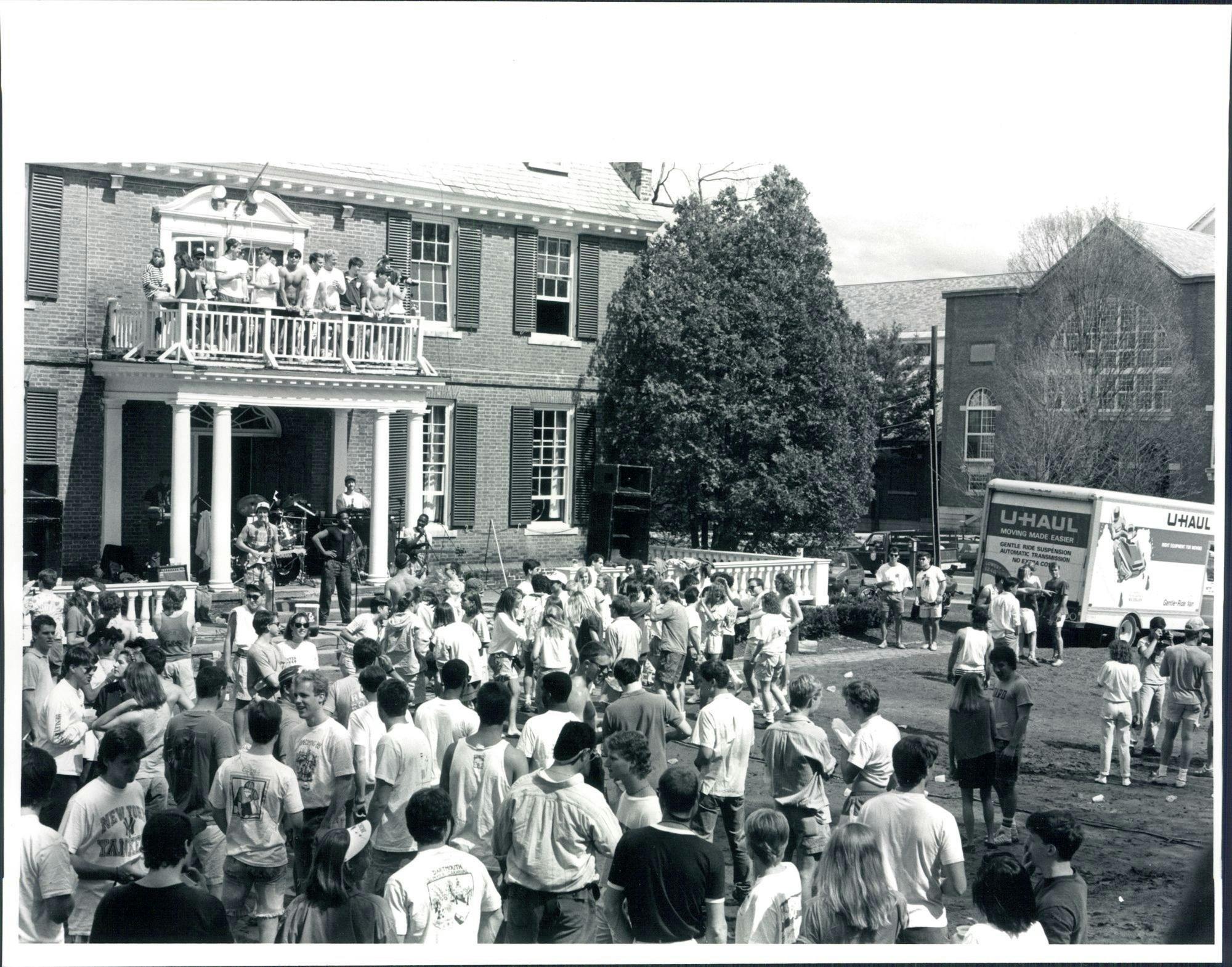Last Friday night, my friends and I sat down to smoke on the border of the sidewalk and the lawn of a fraternity — one that anonymous, bored Fizz users might deem “top haus.” As we talked quietly amongst ourselves, a window opened from above. Voices began shouting into the dark: “Get off our lawn!” One figure threw down a large piece of what seemed like posterboard, which caught in the wind and missed its mark by about 20 feet. The figures then called us bitches, and a couple proceeded to yell, “I’m going to fuck your mom.”
Dartmouth, what sort of idiocy entitles these men to harass and threaten women? If your answer isn’t Greek life, you might be the type to stick your hand into the Homecoming bonfire and expect it to not emerge smoldering. Herein lies the trap of gender exclusive societies. Passed down like tradition, each new class of pledges seem to assert their masculinity onto women who will supposedly lie back and take it.
Kira Parrish-Penny ’24 has researched the Greek system in her archival project on sexual violence at Dartmouth. She’s working with the Historical Accountability Fellowship Program to understand the “Dartmouth Animal,” which she defined as “the institutional, social and cultural factors that created and perpetuated a rape culture at Dartmouth.” Parrish-Penny shared with me a 1973 letter distributed on the night of fraternity rush to the women in Woodward Hall. It was the first year of coeducation at Dartmouth.
“CUNTS,” it reads. “Your status as a co-hog compels our organization to treat you as an enemy. Your mere presence at this institution is in direct confrontation to the goals we consider sacred.”
It follows with a list of demands for the Dartmouth women, including that they be shirtless while eating in Foco and that the softball team play naked on the Green, with the caveat that “cunts with large, floppy tits may wear bras.”
Men called the buses that brought women from other schools to Winter Carnival annually “meat wagons.” The women might as well have been lambs on their way to the slaughterhouse. Parrish-Penny also shared with me the story of a woman found wandering down Webster Avenue alone at night in the spring of 1978 in nothing but a t-shirt, after allegedly having been gang-raped by men from multiple fraternities.
This history makes the brothers’ threat of fucking my mother feel tame. Their forefathers, the men of fraternities in the 1970s, were the ones raping the women who we can consider our Dartmouth mothers. However, this culture hasn’t disappeared. Dartmouth’s 2021 sexual misconduct survey found that 16.2% of female students have “experienced completed or attempted nonconsensual sexual contact by physical force or incapacitation since entering Dartmouth.”
When I first heard the fraternity brothers’ insults, I didn’t want to be one of “those women” who can’t take a joke. But, emboldened by the sight of an open window, I clambered in and found the room of about 10 men. They began to boorishly cheer at the appearance of an anonymous, unaccompanied woman, not recognizing me from below. Did they think I had arrived to give them all blowjobs?
I clarified that I was the girl from the lawn, and my speech defending my mother — no, they could not fuck her — was met with silence. After a moment, one piped up, “Can you not smoke in here?” Their shock reminded me that it’s much more satisfying to say it to their faces, instead of loitering on the periphery.
A Black brother of the house, who took no part in the shouting, approached me afterward with a genuine apology. As I reflected on what happened, I wondered why the actions of some of his white brothers went unnoticed, but not to this particular person? Why did he have to apologize for his ignorant fraternity brothers?
While I appreciated the reconciliation, his insistence that it wasn’t a reflection on the fraternity stood out to me. Of course, I thought, they never think it’s really about the individual house, but the system. Isn’t this every frat boy’s justification?
My encounter is nothing to the haunting history of the abuses of our Greek system. Everyone will go on wearing their lettered crewnecks that tell the world “I belong.” But, why, Dartmouth, must it persist at the cost of women? Why does our self-consciously “enlightened” institution still promote the primacy of the male ego? I urge my fellow members of the Class of 2026 to consider what history they are upholding when they rush the Greek system in the fall.
When the first person shouted out on Friday, a chorus emerged from the window, creating an ugly, entitled mob. Part of me doesn’t begrudge them: They’ve been convinced by tradition that this power is theirs to wield. Get off our lawn. You don’t belong here, but we do.
Charlotte Hampton is the editor-in-chief of The Dartmouth. She hails from New York, N.Y., and is studying government and philosophy at the College.
She can be reached at editor@thedartmouth.com or on Signal at 9176831832.




